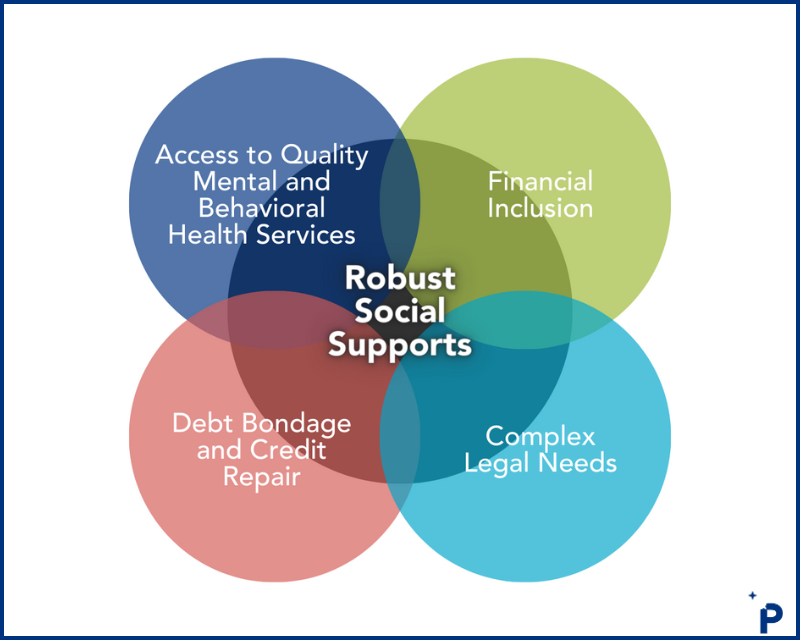
Following our series on state policy wins, Polaris is eager to share further updates about what is happening at the federal level. Although these snapshots focus on pending or soon-to-be-introduced legislation and not established laws, they echo a similar theme from the states — the call to prioritize survivor-led policies across a range of relevant issues.
Polaris is committed to amplifying survivors’ voices in our research, recommendations, and relationships with policymakers. You, too, can raise your voice alongside survivors by learning about current efforts and advocating to your elected officials.
**********
Criminal records relief remains an urgent policy priority across the country. Several states have passed laws giving survivors a pathway to clear criminal records from their trafficking experiences, but some states still restrict relief to specific group classifications, such as sex trafficking victims only or minors only. Three states – Alaska, Iowa and Maine – have no designated relief for trafficking survivors at all. Two other states – Missouri and South Dakota – only have designated relief for victims who were minors at the time of their exploitation, not adult victims.
Given the clear push in state laws, Polaris and other anti-trafficking advocates have long called for a federal law on criminal records relief for survivors. But although such legislation has been introduced in previous sessions of Congress, no federal law has been passed – leaving federally criminalized trafficking survivors with few options for relief from the weighty burden of carrying a lifelong criminal record.
Without consistent and clear state laws and federal legislation, criminal records remain one of the biggest obstacles that survivors face in rebuilding their lives after exploitation. This was a key finding in Polaris’s National Survivor Study, as 42% of respondents reported having a criminal record, and 90% of those indicated it was directly related to their trafficking.
Sign up to learn more about human trafficking and how you can help
But listening to survivors means more than just knowing these statistics. Survivors are the experts on how trafficking victims are wrongly criminalized; how existing law enforcement procedures are traumatizing; and how arduous it is to get a trafficking-related record cleared, often taking several years and multiple petitions. Survivors also know what is at stake — how criminal records prevent them from getting a job, finding safe housing, and regaining financial security, putting them at risk of re-trafficking.
Hearing this urgency, Polaris and our partners are calling on Congress to reintroduce the bipartisan Trafficking Survivors Relief Act (TSRA). Last introduced in 2022, this bill would be a significant step toward federal criminal records relief, including the possibility of full vacatur — the highest level of relief that suggests the person never should have been convicted in the first place.
Join us in listening to survivors and taking action to make sure their voices are heard. Contact your representatives today and ask them to reintroduce and support the TSRA.
Stop human trafficking today
Help fix the broken systems that make trafficking possible so we can prevent it from happening in the first place.


